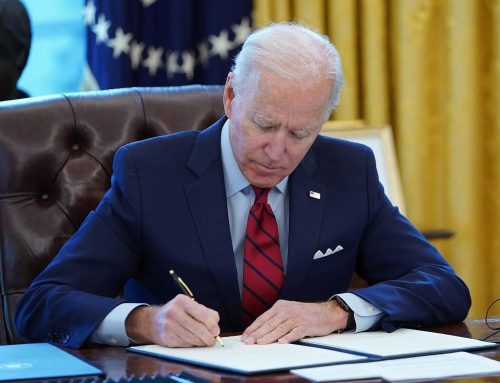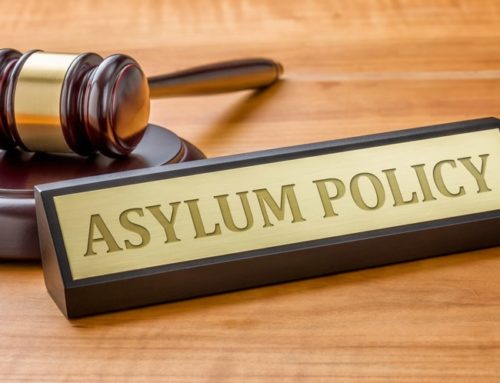Asylum Seekers from Azerbaijan
Asylum eligibility and success of asylum applications depends on variety of factors. Certainly, the most determinative factor is the specific circumstances and facts surrounding the applicant’s case. But often overlooked factor in determining asylum eligibility is the current country conditions in the home country of the applicant. It is important to understand the system and ways by which the government of the applicant’s country operates. Properly educating and informing the asylum officer about the conditions in the applicant’s country plays an important and, at times, a determinative role in the success of an asylum application.
The applicant’s lawyer must pay close attention to the current cultural and social conditions in the applicant’s home country. The current societal norms, habits, phobias, and tendencies must be thoroughly studied and analyzed in light of the applicant’s characteristics and the claim of well-founded fear of persecution. The relevant information about the country conditions must be eloquently articulated in the asylum application, asylum applicant’s written statement, and during the asylum interview. The applicant must substantiate his/her claims by providing evidence of the country conditions in the form of country reports, reports of human rights organizations and international organizations, news articles, blog posts, social media, and other sources. This does not mean simply printing out and sending bulk country reports with the asylum application. The applicant must carefully select the most relevant and on-point information, identifying and highlighting the similarities between the reported incidents of persecution and the incidents contained in the asylum applicant’s story.
Depending on the country of claimed persecution, providing country reports in the way that is most favorable for the applicant’s case is often not an easy task. Imagine an asylum officer who never before heard anything about the government or conditions in the applicant’s home country. The asylum officer may have no idea about the background of the nation or intricacies of its political, social, religious, and ethnic environment. It is the asylum applicant’s duty to educate and inform the asylum officer about the conditions in the applicant’s home country, within a short period of time allocated by the asylum office for the applicant’s asylum case. One should never assume that the asylum officer knows anything about the applicant’s home country. One should never assume that the officer is well-versed in the applicant’s ethnic or religious background or political and social issues in their home country.
In this article, I attempt to provide some useful information about the current country conditions in Azerbaijan, and I hope to provide some advice and resources for successfully preparing asylum applications for asylum seekers from Azerbaijan. The information and opinions in this article are based on my legal representation of multiple asylum seekers from Azerbaijan and my personal awareness about the current country conditions in Azerbaijan as of the date of this article. My goal is to provide informal and more hands-on information about country conditions in Azerbaijan, different from the traditional and formal sources of country condition information such as the Department of State Human Rights Reports. I sincerely hope that, one day very soon, the human rights conditions in Azerbaijan will improve to the level that it would make this post irrelevant. However, the current ever-deteriorating human rights conditions in Azerbaijan, unfortunately, ensure the ever-growing number of asylum seekers from Azerbaijan.
See this in PDF: Asylum Seekers from Azerbaijan
NOTE: The information contained on this page site is intended to educate the general public and is not intended to provide legal advice. To ensure proper handling of your individual situation, please call (703) 527-1779.
Political Opinion – Opposition, Bloggers, and Journalists
Since this post is designed to provide practical information and tips, which are not available from other sources, to help asylum seekers from Azerbaijan or their counsel, I will not describe in great deal the current general political condition in Azerbaijan. There is plenty of accurate and thorough information online, including State Department Reports, about the regime in Azerbaijan and its systematic persecution of opposition members, bloggers, and journalists. But to give a brief run-down, Azerbaijan is a de-facto monarchy, currently ruled by Ilham Aliyev[1], the son of the late former president Heydar Aliyev. Heydar Aliyev was a Soviet KGB General and the First Secretary of the Communist Party. For the last 22 years, Azerbaijan has been ruled by the Aliyev family, which made billions by systematically grabbing shares of the most profitable businesses and sectors in Azerbaijan for many years.[2] The video below represents Ilham Aliyev’s ascent to power in 2003, after his father’s death: https://www.youtube.com/watch?v=8qVnARtjfwI
Aliyev’s regime has been targeting bloggers, journalists, lawyers, political activists and their families. Tactics employed by the regime includes beatings, torture, harrassment, threats, imprisonment and murder.[3] The government constantly monitors lives of politically active individuals, monitors political and civil society meetings, and uses media to harrass and discredit those with different views. In some instances, Azerbaijani government secretly video-records private moments of political activists and then blackmails them with public humuliation and harrassment. Journalists are often beaten and imprisoned. All foreign non-governmental organizations (NGOs) have been shut down in Azerbaijan. There are currently over 100 journalists and bloggers in prison. Many others are systematically harassed, beaten, tortured, and intimidated.
The Aliyev government is especially fearful of young non-traditional civic groups, such as NIDA[4], because of their independent and unpredictable approach and activism. Eight members and founders of NIDA have been kidnapped, arrested, and sentenced under bogus charges in 2014.
Implied Political Opinion – businessmen, former government employees, and other politically uninvolved individuals
Most political opinion cases from Azerbaijan nowadays involve persecution on account of non-traditional (implied) political opinion. What does this mean? Traditional political opinion is a political opinion that is clearly manifested and recognized as a political activity, including involvement in oppositional movement, membership in a political party, participation in protests, and expressing views through social media and blogs. Non-traditional or implied political opinion is harder to detect. Implied political opinion usually involves some acts of the applicant, which by themselves do not seem to fall under the category of “political” acts, but can be categorized as such, since those acts “imply” political opinion because of the applicant’s disagreement with the government or their representatives. In simpler terms, it means defying orders of the government. For example, an asylum applicant who refused to give false testimony is considered to have manifested implied political opinion. Although the applicant may have had no opinion about the government or political system one way or another, he was afraid to give false testimony and refused to do so. He was then harassed and charged with contempt or falsified accusations. Based on the case law, this applicant is deemed to have manifested his implied political opinion by refusing to obey the orders of the prosecutor’s office, and thus he is eligible for asylum.[5] An applicant may demonstrate persecution on account of implied political opinion, if the applicant shows that the persecutor thought that the applicant was attempting to expose corruption in a government institution and mistreated the applicant as a result, even if the applicant in fact had no such intention.[6]
In the context of Azerbaijan, the cases of “implied political opinion” usually occur as follows. The government of Azerbaijan is ruled by multiple clans.[7] There is a hierarchy of the clans, where the clan of the president Ilham Aliyev[8] is on the top. Most other clans share different levels of hierarchy among each other. Those clans, usually headed by cabinet ministers and lawmakers, each have control and monopoly over different sectors of Azerbaijan’s economy. For example, Minister of Transportation, Ziya Mammadov,[9] together with his son, controls the construction industry and transportation; Minister of Emergency Situations, Kemaleddin Hedarov,[10] rules the country’s import and export of most goods, except for oil; the oil sector belongs to the president’s family, as do many other strategic natural resources of Azerbaijan.
But there are some grey areas and sectors of Azerbaijan’s economy, where the asserted powers of various groups and clans overlap. Therefore, the second and third tier clans in Azerbaijan often clash. These clashes are usually in the form of setting up and removing each other’s subjects (usually friends, relatives, or vassals) from various positions of power in lucrative sectors of the country’s economy. Once in a while, such clashes result in a complete overthrow or annihilation of a large and well-established clan.[11] Then you have smaller clans or sub-clans within larger clans, which also clash.
When clans or sub-clans clash, it often results in sweeping arrests and imprisonment of individuals surrounding the defeated clan. Usually, the process involves engaging operatives of various police units and law enforcement agencies of Azerbaijan, such as Ministry of National Security, Ministry of Internal Affairs, Tax Inspection, Organized Crimes Units, etc., to work up criminal cases against those groups and individuals who have been ordered removed. These law enforcement agencies in Azerbaijan act as institutionalized hitmen. They receive orders from the top to take someone out. In doing so, the hitmen get to keep the trophies, i.e. the extortion money from anyone caught up in the process, their properties and assets. This ensures that the hitmen (law enforcement) remain motivated and get to make a living for themselves.
Some of the individuals who get caught up in the chaos are innocent bystanders, who were unfortunate enough to have been in the wrong place at the wrong time. Those are typically businessmen, office workers, private companies, business owners, and other common workers, who may have worked or provided services in the sector of the economy controlled by those clans. In the process of building a case against their target, law enforcement in Azerbaijan use coerced testimonies, fake witnesses, forced written statements, and the like. Quite often, “witnesses” themselves become targets of prosecution in Azerbaijan.
Many asylum seekers from Azerbaijan also unknowingly manifest their implied political opinion by refusing to cooperate with the government in business transactions and deals. What does this mean? For example, all successful businessmen or government employees in Azerbaijan are sooner or later asked to cooperate with the government or clans in the government, to participate in various corruption schemes. A businessman may be asked to give kickbacks to government officials to win a bid for a project. A government worker may be asked to participate in transactions involving bribes, money-laundering and cover-ups. As another example, if you are in the business of importing or exporting goods in Azerbaijan and if you are successful, at one point, very soon, you will be asked to under-declare the cost of the goods to pay less in customs duties to the budget and instead to pay kick-backs to customs officials. The same applies to paying business taxes and any other fees or levies that would normally go to the budget. Once in a while, you have an individual who ever so slightly disagrees with the ways these things are done in Azerbaijan. He or she may refuse to share their business profits or refuse to participate in these schemes, refuse to pay a bribe, or simply refuse to do something that the Tax Department or Customs officials asked them to do. Immediately thereafter, such individuals get blacklisted and their businesses, their assets, and their families become targets of persecution in Azerbaijan. The orders come from top to bottom.
Here is how the orders work: If you step on toes of a top official or group, they simply order the “executors” to “take care” of you. Often, the orders are unspoken and the executors have an understanding of what to do. The executors are usually the Ministry of National Security, Ministry of Internal Affairs, Organized Crimes Unit, Tax Department, Drug Enforcement, Prosecutor’s Office, and local Police Departments. Meanwhile, while taking care of the orders, the executors expect personal incentives. This ensures prompt and accurate implementation of the orders. The incentives typically involve financial gains, ransom, shake-downs, and capture of the victim’s property and other benefits. The law enforcement agents usually get paid for their “favors” and get to keep the trophies they may capture in the process – property, ransom, and blackmail proceeds.
Imputed Political Opinion – relatives, friends, and family members of activists and others
Relatives of activists, opposition members, and journalists are systematically persecuted in Azerbaijan. The government has been aggressively targeting relatives in recent times. In 2015, the government arrested and brought fabricated charges against the brother-in-law of a prominent blogger and director of an online TV channel, Emin Mill.[12] Soon, Milli’s other relatives, under threats of persecution, were forced by the Azerbaijani government to issue a public letter disowning Milli for his opposition to Aliyev’s regime.[13] In May of 2015, the government of Azerbaijan sentenced to 6 years prison Murad Adilov, the brother of an exiled prominent oppositional journalist Natig Adilov.[14] The government conducts searches in the houses of the relatives of the exiled journalist Ganimat Zahid.[15] Azerbaijani authorities hound the family of Ganimat Zahid.[16] The daughter of oppositional candidate Jamil Hasanli was sentenced to one and half years in prison on fabricated charges.[17] On October 13, 2015, Azerbaijani authorities arrested on fabricated charges the brothers of Medan TV editor Gunel Movlud.[18] There are many more unreported cases of imputed persecution of the relatives in Azerbaijan. No one is spared.
Religion
Since Azerbaijan is a traditionally Muslim country, it may sound strange to an asylum officer that most of religion-based persecution in Azerbaijan is aimed at Muslims. Purely in a religious context, Azerbaijan historically has been one of the most secular and tolerant Muslim countries. Although some may disagree, there is relatively little discrimination by the general population against minorities and religious groups. The government of Azerbaijan does not have any preference or grudge against one religion or another. However, the government of Azerbaijan generally distrusts any and all groups and organizations, whether those groups are political, religious, or civic. As most dictatorial regimes, Aliyev’s government is paranoid about being overthrown by a popular uprising. Therefore, the regime systematically limits freedom of assembly and freedom of association for any purposes whatsoever.
Recently, Aliyev’s regime, under the deal and in agreement with Turkey’s Erdogan, has been systematically targeting the members of Gulen movement, also known as Nursi followers.[19] In a deal between Aliyev and Erdogan, Turkey arrested and forcefully returned to Azerbaijan several dissidents, journalists, and political activists.[20] In return, Aliyev’s regime backed Erdogan’s crackdown on Gulen movement by shutting down Gulen-linked schools and organizations and targeting individuals associated with the movement.[21]
Generally, most of recent asylum claims from Azerbaijan are based on political opinion grounds. As described above, political opinion does not have to be necessarily expressed in a traditional way, such as membership in an oppositional party, investigative journalism, or political dissent. Political opinion can be implied, imputed, or attributed to an individual or a group that may not even realize it. There are many ways to prove political opinion.
One of the challenges in asylum cases from Azerbaijan is demonstrating to an asylum officer that the government of Azerbaijan persecutes not only the prominent and well known leaders and journalists involved in anti-regime struggles, but also many uninvolved individuals, bystanders, and not-so-well-known bloggers and activists. Unfortunately, most of the Azerbaijani government’s abuses, acts of torture, coercion, and killings do not get media coverage, simply because not every case involves a well-known individual. The US State Department’s reports on human rights in Azerbaijan account for some of the otherwise undetected cases, by providing general numbers of individuals killed, abused, and tortured by the Azerbaijani government. However, unfortunately, there are many more undisclosed cases, which remain below the radar. Most of the reports and information on such cases are not in the English language, and not all of them are readily available online.
Representing asylum seekers from Azerbaijan presents its own unique challenges. Some of the asylum officers have never even heard of this country and have no idea about its background, culture, and its current political conditions. Therefore, the asylum lawyer must properly inform the asylum officer about the country conditions, provide necessary country reports, ensure that all relevant questions are asked and answered, and that the supporting legal arguments and applicable court precedents are properly presented to the officer at the conclusion of an interview, in the form of an oral closing statement, as well as a written memorandum of support.
Ismail Shahtakhtinski, Esq. is the founder and principal attorney at I.S. Law Firm, PLLC, an international law firm representing individuals and organizations in a broad range of immigration matters with an emphasis on US asylum law.
[1] http://www.rferl.org/content/azerbaijan-ilham-aliyev-corruption-person-of-the-year/24814209.html
[2] http://www.theguardian.com/world/2013/oct/07/azerbaijan-elections-ilham-aliyev-allegations
[3] https://cpj.org/killed/2005/elmar-huseynov.php
https://cpj.org/killed/2011/rafiq-tagi.php
[4] http://uk.reuters.com/article/2014/05/06/uk-azerbaijan-rights-idUKKBN0DM12J20140506
[5] Chang v INS, 119 F.3d 1055 (3d Cir. 1997). “To the contrary, the evidence compels a reasonable fact finder to conclude that Chang has “manifested” opposition to the Chinese government. His actions in defying the orders of the Chinese government because he disagreed with how they would treat those suspected of trying to defect did exactly that. Simply because he did not call himself a dissident or couch his resistance in terms of a particular ideology renders his opposition no less political.”
In Osorio v INS, 99 F.3d 928 (9th Cir.1996), the court ruled: “The Government argues that he has not established what his political opinion is, but the Government’s view of what constitutes a political opinion is too narrow. The Government complains that Osorio has never stated “which political party he belongs to, which political philosophy he espouses or which political leaders he supports. He never placed himself, SCTM or the city government at any point along the political spectrum.” […] We agree with Osorio that the Government’s argument betrays an impoverished view of what political opinions are, especially in a country like Guatemala where certain democratic rights have only a tenuous hold. Osorio argues that “it is not only people in political parties who have political opinions.”
[6] Khudaverdyan v. Holder, 09-70751 (9TH CIR. 6-22-2011).
[7] https://wikileaks.org/gifiles/docs/10/1074636_-eurasia-azerbaijani-clans-who-controls-what-in-a-small.html
[8] http://www.rferl.org/content/azerbaijan-ilham-aliyev-corruption-person-of-the-year/24814209.html
[9] http://www.meydan.tv/en/site/politics/2535/One-man’s-empire–the-minister-of-transportation-and-beyond.htm
[10] http://azerireport.com/index.php?option=com_content&task=view&id=2511
[11] https://eurasianet.org/azerbaijan-former-minister-of-economic-development-receives-10-year-term
[12] https://www.meydan.tv/en/site/news/7143/Emin-Milli%E2%80%99s-brother-in-law-arrested.htm
[13] https://www.meydan.tv/en/site/news/7234/Relatives-disown-Emin-Milli.htm
[14] http://en.rsf.org/azerbaijan-azerbaijani-authorities-hound-well-22-07-2015,48135.html
[15] http://www.azadliq.org/content/article/27305890.html
[16] http://www.cacianalyst.org/publications/field-reports/item/12946-turkeys-g%C3%BClen-controversy-spills-over-to-azerbaijan.html
[17] See for example: https://www.hrw.org/news/2014/04/24/turkey/azerbaijan-journalist-deported-imprisoned; https://www.meydan.tv/en/site/news/1413/Azerbaijani-Journalist-Deported-Charged-with-Treason-(UPDATED).htm
[18] http://www.hurriyetdailynews.com/azerbaijan-shuts-down-gulen-linked-schools——.aspx?pageID=238&nID=67988&NewsCatID=355






